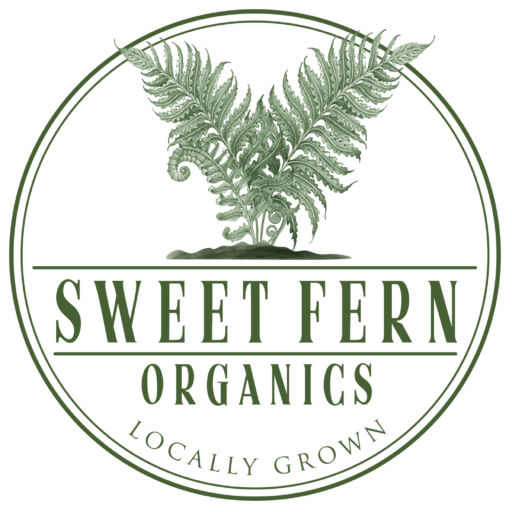Undoubtedly the ability to grow delicious, high-quality vegetables is an essential skill for any successful market farmer. However, there are some equally important non-gardener skills required to be successful in market gardening as well.
What type of skills do you ask?
Allow me to explain, in chronological order, what non- gardener skills you need to become a successful market farmer.
Before you even plant a seed, you need a plan. This brings us to the first essential non-gardener skill.
Organizational Skills
Planning out what seeds to buy and where to plant them requires a high amount of organization.
You need to be accurate with your planning. The last thing you want is to not have enough seeds or enough room in your beds to plant them.
You will also need to organize your day. You will need to keep track of your duties and make sure vital tasks get achieved.
As well, if you have staff, volunteers, interns, or family and friends working at your farm, you will need to schedule them to know what tasks they are doing each day to maximize productivity.
Record Keeping Skills
Record keeping is incredibly important and vital to your organization process. Luckily, there are these great inventions called spreadsheets that help market farmers stay organized.
Spreadsheets can help with:
- Plantings
- Tracking yields
- Weekly sales
- Orders
- Crop information
- Invoicing
- Scheduling
- Budget and expenses
- Seed order and stock
- Spoilage
Mind you, there is a learning curve when learning something new, and learning how to use spreadsheets is no different.
We use google sheets for tracking all of our data, and we highly recommend using them. They are pretty handy because you can access your documents from any device as long as you’re signed in to your account. Both Jon and I can access them as well, so that is a bonus.
Jon has really delved in deep with creating the spreadsheets we will be using in the spring. Don’t worry, I will link to them here when they are complete!
When you start making your own spreadsheets and find yourself stuck with how to do something, don’t fart around with it too long, instead hit up google and be as specific as possible with your issue and you should be able to find a tutorial that answers your question.
Linked here and here are good beginner google sheets tutorials.
Educator Skills
The transition from farmer to farmer-educator will happen naturally. As you become more knowledgeable, you will be able to pass on interesting and valuable information to your clientele.
The more you know about how to plant, grow, harvest, and cook vegetables, the better so you can help out your customers and be known as the person that knows the most about gardening and all it entails.
Don’t be nervous if talking to people is not your forte. Believe me, it’s not mine either, but the more you articulate the same points over and over again, the more comfortable you will be with speaking to people.
Taking the time to educate potential clients is important, so if you are really uncomfortable talking to people then practice talking to your plants as you work.
Sounds silly but the more prepared you are, the more confident you will be when you speak to actual people.
You will also need to talk to and educate chefs, and grocery store managers when it is time to sell your crops if you plan on using these as sales outlets.
Time to get out of your comfort zone and educate! I will be right there along with you.
Introverts Unite!
Marketing Skills
Promoting yourself and your farm is a critical part of succeeding as a market farmer.
You are your own brand -Curtis Stone
You probably have a story that led you to market farming. Good, use that as your promotional tool.
Tell your story well and often. Start at farmer’s markets or your roadside stand.
Wherever you have customers, tell your story. The more you tell it, the better it will be.
Use your plants to practice as I mentioned before. People will love to hear your story, I can pretty much guarantee it.
Another good tactic for memorizing your story is to write it out. This works well for me, I seem to remember things better after I have written them down on paper. Try it out and see if it works for you too.
You will probably be asked the question, why? a lot, so be prepared.
Other popular questions are:
Why do you do what you do?
What led you down the path of farming?
The how and the what is important to know as well, but it is the why that will keep people engaged and interested.

Social Media
Once you have established a core customer base (and even before), you need to get yourself on social media.
Even if you thoroughly dislike social media, it’s an important part of your business. It helps you to keep in touch with your clientele at any time.
Social media is a very powerful tool when used correctly.
I recommend three main avenues for new market farmers to start their social media adventures.
Website
Technically not social media, but can be used to communicate with your clientele all the same.
Your website should include:
- Farmstand location and hours
- Farmers market location and hours
- About You Page
- Contact info
- Timely information (e.g. CSA sign up)
- Newsletter
- Blog
Now, having a newsletter and blog is not necessary, however, they are very powerful tools.
A newsletter helps you gather email addresses for further communication with your clientele.
A blog with good articles helps with Search Engine Optimization (SEO).
I’m not going to go into a lot of detail on these topics in this article, let me know in the comments if you want me to write a separate article on starting a website.
You have probably seen on your googling travels that many small businesses simply use a Facebook page as their website.
I urge you to set up your own website with hosting and all that jazz. It’s just more professional and you can do more with a website than just using Facebook, such as to collect emails and CSA orders for example.
No need to worry if you don’t have any experience with building a website, there are a ton of tutorials on how to set up a website from the beginning, this is the one that I used.
It’s time to get on the ‘gram if you’re not already there! Instagram is really the perfect app for showing off your gardens and vegetables.
People love bright, vibrant pictures of vegetables. Sounds weird, but it’s true. Our farm, Sweet Fern Organics only has a few pics on it so far and we have over 20 followers without even trying.
Don’t get me wrong, we plan to grow this following eventually but for now, we are using Instagram to see what other market farms in the area are doing and to keep in touch with vendors at the local farmer’s market.
My advice to you if you’re just starting out with Instagram is to follow your local farmer’s markets and all the vendors that are there.
Also, do some research and find out who in your area has a lot of followers and mimic (not copy) what they are doing.
For example, there is a flower grower named Dahlia May Flower Farm in my area that has over 80,000 followers which is amazing. So naturally, we started following her so we can see what kind of posts and descriptions she is using so that we can emulate her and hopefully establish a large following on Instagram as well.
Instagram is also great for instant communication with clients. If you’re at the farmer’s market, make a story or post about being there at that moment. You might just get visitors that saw your post and drop by to say hello (and buy your veg).
Instagram is a pretty great app without a huge learning curve, so be sure to have it in your bag of social media tricks for your market farm.
YouTube
Believe me, nobody likes to watch themselves on camera. You gots to get over that!
Sharing helpful videos on all aspects of your market garden should be an important part of your business.
Why?
Because people like helpful videos. Video content is being consumed over print more and more these days.
If you start a blog on your website, using a video on your post to enhance your article is a great idea. This aids with SEO and helps establish yourself as an expert in the field (even if you have to fake it till you make it!).
As well, a huge perk for creating content for youtube is that you can monetize it. This can be a very lucrative stream of income if you make good videos that help people achieve the desired outcome.
That’s the basis for Youtube videos. Be useful and help people solve a problem.
Chances are when you are starting your market farm, you will encounter many problems you will need to solve.
Grab your phone and make a video about it. Upload said video to youtube and there you have it, your youtube channel is started.
Check out videos in the market garden sector of youtube and you will find that they do not have crazy high production value.
Yes, they do have basic edits, but that’s about it. They do not have to be works of art, especially at the beginning when you don’t know what you are doing.
As long as your videos are helpful, that is your main goal.
Honestly, there is not a ton of competition on youtube for the market garden niche, so as long as you provide useful content regularly, there is a good chance you will succeed on youtube over time.

Managerial Skills
You’re gonna have to be a boss!
The long and short of it is that you are now running a business. You may have never been a boss before. We haven’t (besides at home! Haha!).
You will be responsible for all of the gardener and non-gardener tasks outlined in this article.
That’s a lot of responsibility, but if you put in the work, you will be able to do it well. I suggest reading about managing a small business in the off-season (winter).
Also, the books suggested here have valuable information on different aspects of managing a market farm.
Remember, this is your business and your livelihood, be as prepared as you possibly can be and ask for help when you need it.
Check out local resources in your area for small business start-ups, they are often free and can be very useful.
I hope this article sheds a little bit of light on the non-gardening aspect of market farming.
If I missed any non-gardener tasks or if you want me to elaborate on any of the points in this article, let me know in the comments below.
Stay Local,
Kathy & Jon
your friendly neighbourhood growers


0 Comments